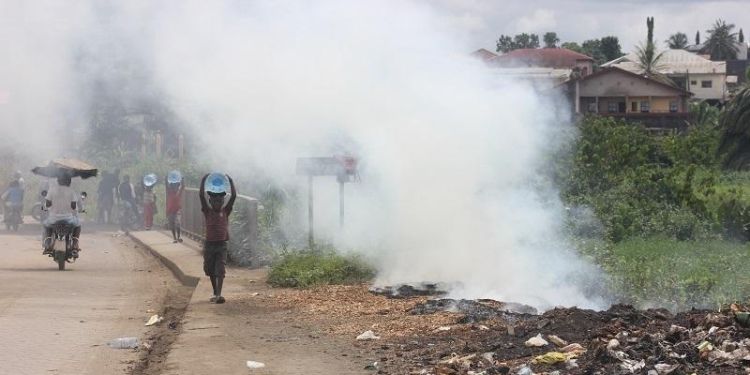Research highlights

Our researchers work at interfaces from different disciplines to tackle national and global challenges. Overall, 97% of the submitted research activity was assessed as “world-leading” or “internationally excellent” by the Research Excellence Framework (REF) 2021. We have:
Delivered impactful global research
Led world-leading work on waste and sanitation in developing countries, supporting UN Sustainable Development Goals (UNSDGs). Provided new systems-based tools to quantify and manage solid waste and faecal sludge in rapidly urbanising environments.
Pioneered two international collaborations to develop new approaches to tackling the global challenges of improving water security and urban disaster risk management.
Shared insights with leaders in the Asia-Pacific region in an effort to stem the flow of plastic pollution into the environment, as part of a novel eLearning programme launched by the United Nation’s Economic and Social Commission for Asia and Pacific (ESCAP).
Led an international collaboration funded by the Global Challenges Research Fund (GCRF) to employ heritage as a tool for transition and reconciliation in conflict-induced communities that focuses on the agency of women and young people.
Modelled the stocks and flows of plastic waste around the world, identifying that more than 1.3 billion tonnes of plastic will be dumped on land and in the oceans over the period from 2016 to 2040 without intervention.
Received GCRF funding to tackle global plastic pollution as part of the Reducing the Impacts of Plastic Waste in Developing Countries programme.
Joined an interdisciplinary team of experts on a project funded by The British Academy to investigate the aftermath of severe destruction of Mosul’s heritage assets and displacement of its communities as part of the £1.5bn GCRF award.
Led an international collaboration that supports UNSDGs to help the residential construction sector to recover from disasters and build resilience to future shocks.
Influenced international design codes through developing low-carbon cements, as a result of designing fundamental new models that give insight into cement and concrete microstructures following long-term aging in weathered conditions.
Influenced international design codes by developing new methodologies to assess concrete environmental performance using conductivity, models to quantify splitting risk in reinforced concrete, and large-scale experimental analysis of lightweight steel structures.
Delivered impact on local and national scales
Through our expertise in Fluid Dynamics, developed new designs for heat exchangers with BAE systems, novel LBM-GPU models that enable real-time airflow simulation for indoor environments, and quantitative stochastic infection models to assess hospital design risk.
Advised Government Officials on approaches to preventing Covid-19 spread through airbourne transmission by improving indoor ventilation, winning a Royal Academy of Engineering award.
Joined a new consortium a new to improve sustainability in the UK’s foundation industries, which account for 10 per cent of the UK’s total CO₂ emissions.
Pioneered new systems and statistical approaches for assessing energy and infrastructure materials lifecycles, which led to national leadership of the UKRI Resource Recovery from Waste Programme.
Contributed to an innovative green housing scheme, a Ground Source Heat Pump (GSHP) project led by Leeds City Council (LCC), which led to being awarded the ‘best carbon reduction scheme/innovation’ prize in the Northern Housing Awards 2021.
Carried out award-winning research that advanced the structural performance of energy-efficient modular housing construction in partnership with ilke Homes.
Contributed to a study, Rail Innovation Eco-System, to better understand the Leeds City Region's research and innovation capacity, capabilities and potential which made a compelling case for further investment in rail innovation in the region.
Secured funding to help two large industrial sectors make the transition to a greener, more sustainable future where they reduce waste, energy and pollution.
Led the EPSRC Grand Challenge project on self-repairing cities, which is using robotics to develop sustainable ways to repair infrastructure.
Expanded our research
Developed new statistical approaches for assessing mega-projects and energy infrastructure, which directly informed BEIS Nuclear’s strategy.
Through a collaboration with Hanze University of Applied Sciences, Netherlands, developed Artificial Intelligence and deep learning-based technology that is able to trace cracks in masonry from digital images.
Through our research investment in High Speed Rail has, developed a new area of research activity that provided substantial insights into track performance through full-scale measurement and new models.
Expanded our geoenergy research to become a significant new area of activity with novel work modelling the performance of thermal piles and ground-source heat exchangers.
Through implementing a new strategy for Cities, Infrastructure and Energy research, developed new approaches to analyse the complex interplay between resilience and technical infrastructure performance to support energy efficiency and sustainable building design.
Built on our expertise in water and environmental engineering, which led to developing new models of urban drainage hyrodology and global flood risk.
Contact us
If you have a enquiry, please contact Dr Miller Alonso Camargo-Valero, Director of Research and Innovation.

